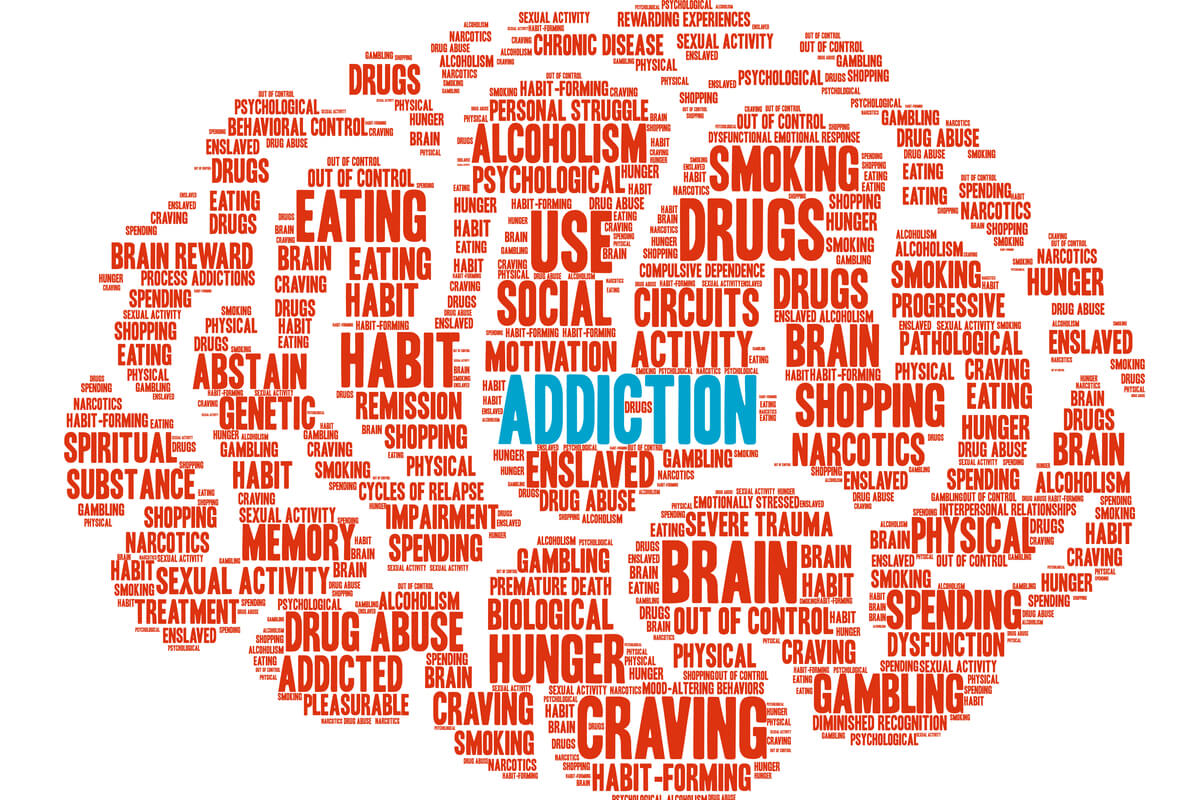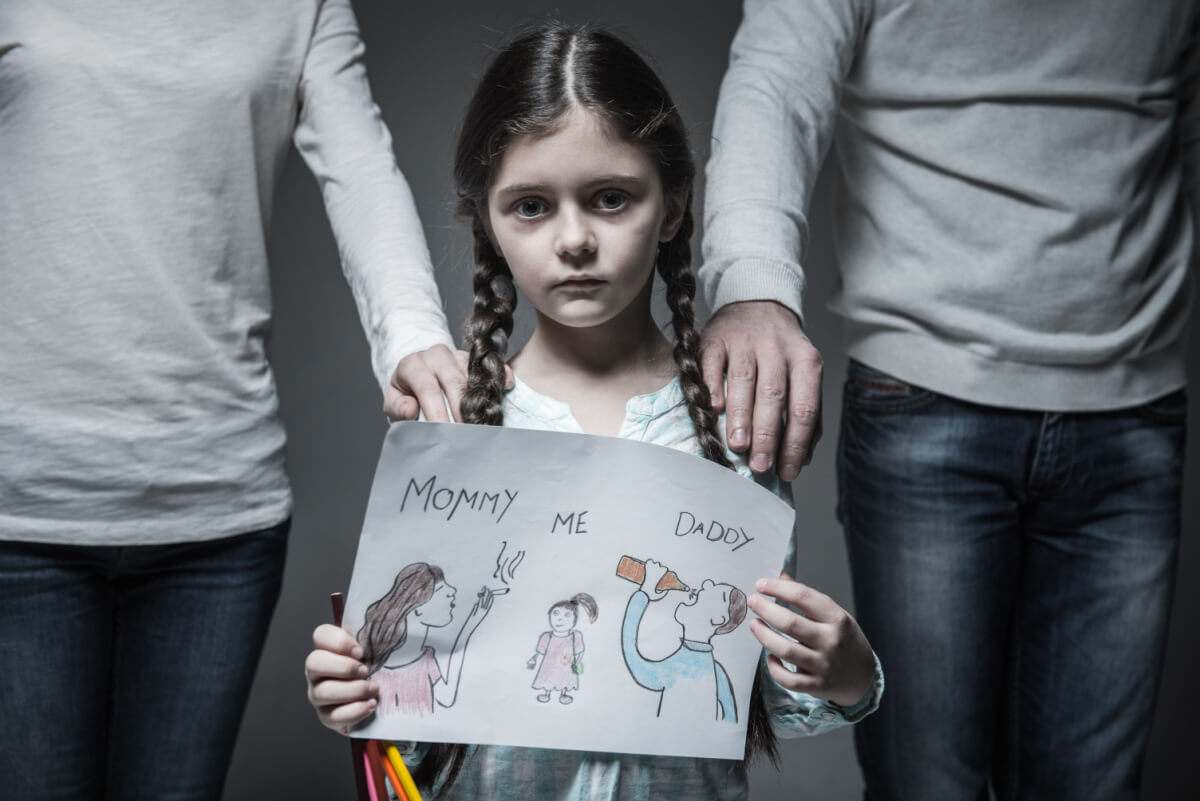
When a loved one is in crisis and struggling with addiction, hardship affects everyone in the family. It is not just the person living with addiction that must deal with the consequences of unchecked drug and alcohol use. Their friends and family are often deeply wounded emotionally and financially and in need of their own support system.[1]
Roles of Family & Friends in Recovery
The roles of family and friends in the life of someone in recovery vary widely based on their role in the individual’s life and that person’s desire to have them be a part of their recovery experience.
In some cases, both the family member or friend and the person in recovery equally desire to work together to help the journey to recovery. In most cases, however, there is a disparity between how much the person in recovery wants support from specific friends and family members and how much those friends and family want to be involved.
Sometimes the person in recovery deeply wants the attention and loving support of those they love, and those people need some space after a long journey through addiction with their loved one or their own struggles with addiction. In other cases, one or more friends and family members work hard to be in an authoritative position in their loved one’s recovery, playing just as large of a role that they played in caring for their loved one during active addiction while the patient would benefit more from space to find their own way.[2]
A friend or family member’s level of involvement in a patient’s recovery should be chosen by the patient as they go through the very difficult and sometimes traumatic experience of not only learning how to live without substances but also addressing the underlying issues that caused them to develop an addiction in the first place.
What to Do When Your Loved One Is Struggling in Addiction Recovery
If someone you care about is living with an addiction, it is important to take consistent action. Follow these tips:
- Stay awake and aware. When your loved one begins treatment, this is just the first step on a long journey. Just as addiction did not happen overnight, recovery will not occur overnight either. It takes time, and during the course of treatment there are likely to be many ups and many downs. Patience is imperative.
- Express your concern and share your perspective but leave the door open for them to express how they feel. For example, “I’ve noticed that you seem to be having a hard time this week. What’s going on?” Rather than trying to tell them how they feel, it’s better for their growth to find a way to talk about what is going on with them and for them to know you are there to support them no matter what.
- Ask how you can support them. It’s important that your loved one feel empowered to manage their problems as they arise, but sometimes, asking for help is important as well.[3] Asking them what they need and how you can help lets them know that they have support if they want it without telling them what they need or just doing things for them with the assumption that it is needed.
- Listen. Your loved one has a lot to process and work through as they are presented with new ideas in treatment and opportunities for figuring out who they are without substances. Sometimes all they need is for someone to listen, not necessarily offer advice.
What Not to Do When a Family Member Is Trying to Overcome Addiction
There are also a number of things that are not recommended if your true goal is to support your loved one in recovery. Here are some of them:
- Do not drink or use drugs around your loved one. It’s true that you are not the one in recovery and that you may have sacrificed quite a bit for them already. But if you wish to help them stay sober, using substances or being under the influence around them might set them back. Ask them what their preference is around you or other individuals using it in their presence, and if they are ok with it or not.
- Do not store drugs, alcohol, cash, or items that can be easily sold where your loved one can find them. If your loved one can drink it, use it to get high, or sell it to buy substances, it needs to be out of the house or locked up and out of sight. Though it is true that they will encounter temptation out in the world, it is better for them to at least come home to a place without temptations.
- Do not ignore signs of drug use. If there is concern for relapse or return to drug use, it is important that you speak up and identify the problem with your loved one and potentially to those who can support them better in treatment.
- Do not force your view of what they “should” be doing. It’s easy to judge someone from the outside, especially if you feel deeply invested in the outcome of your loved one’s recovery. You cannot always control what your loved one does, and your time would be better spent strategizing your own recovery from your loved one’s addiction than micromanaging their choices.
- Do not push your issues, needs, and concerns into the spotlight. It is tempting to want to take advantage of your loved one’s clarity to point out all the ways that you were hurt, wronged, or damaged by their choices during addiction, but this will only steal focus from where your loved one’s attention needs to be — on their own recovery. It is very likely that you need to process what you have been through and how to move forward, but this is better accomplished with your own therapist.
- Do not make your loved one’s choices about you. No matter how much you have sacrificed and invested in your loved one’s wellness, whether or not they stay sober is not a personal affront to you or a statement about who you are or how they feel about you. SUD is a disease. Understanding it as such can help us let go of feeling personally offended when a loved one continues to use in spite of what we have requested of them.
Helping Someone Get Help
If your loved one is not yet in a treatment program, you can help encourage them to seek help.
Ongoing use of any substance means continued risk of death through overdose, accidents, and choices that could be devastating to them and the people around them.
Helping someone get help means the following:
- Setting boundaries
- Avoiding enabling behaviors
- Taking care of yourself and paying attention to your own health as a caregiver
- Prioritizing healthy relationships in your life
Interventions
In some cases, helping someone to get help means staging an intervention. An intervention is a formal meeting usually involving friends, family members and even a professional coach to help arbitrate the conversation, in which everyone articulates the way an individual’s substance use is negatively impacting them and implores the individual to engage in treatment. [5]
In most cases, an intervention includes the following components:
- Planning: Successful interventions are not impromptu events. They are generally planned by one or two people with the support of an addiction treatment professional. They include the support and assistance of other people who love and care for the person living with addiction. Planning sessions usually are run by a professional to help participants know what an intervention is and what their role will be, including guidance on what they should and shouldn’t say when they confront the person with addiction.
- Surprise: It is important that your loved one not know about the intervention until it is happening. Few people living in addiction will willingly attend their own intervention, and if they do, they will likely be defensive or attempt to sabotage the process in some way.
- Sharing: Everyone who wants to speak will generally have the opportunity to share why they believe the person is living with an addiction and why they want them to get help. The person undergoing the intervention is asked to listen.
- Offer for immediate treatment: Once a person agrees to seek treatment, a plan should already be in place. You should prepare by having the names and contact numbers for treatment facilities ready so that you can call right away to get into treatment.
- Immediate consequences if treatment is not accepted: If the individual refuses treatment, it may be helpful to articulate boundaries and consequences that will result. For example, you might say “if you refuse to seek treatment, I will no longer be loaning you money”, or “if you do not allow us to help get you some professional help, I will have no choice but to stop allowing you to sleep in my house”.
Setting Boundaries
It is important for both you and your loved one to have a clear understanding of what is okay and what isn’t in your relationship and in the form of house rules, if applicable.
Creating boundaries is likely not going to be prioritized by the person living with a substance use disorder because their ability to get and stay high is buoyed by the breakdown of appropriate boundaries in their closest relationships. This means that friends and loved ones need to take the reins in setting boundaries and defining them clearly but also in maintaining those boundaries when they are pushed by the person living with a SUD. [6]
For example, it is important to set boundaries around these things:
- Personal possessions: Define what is and isn’t yours.
- Substances: No substance misuse should be allowed in the home, and substances should not be stored in the home.
- Honesty: Truthfulness and transparency are essential for any healthy relationship.
- Emotional management: No one should be the subject of verbal abuse or anger.
- Physical safety: Aggression of any kind will not be tolerated.
- House rules: When it comes to having guests over, keep things hygienic and clean. Keep up with household chores, and everyone should be respectful of other residents.
Taking Care of You
Loving someone who is living with a SUD is anxiety-inducing and takes a toll on your health as well as the health of your loved one.
It is essential to prioritize choices that will help you to maintain your own mental and physical health, including these:
- Feeling physically and mentally safe
- Getting restorative sleep
- Eating healthfully
- Exercising regularly
- Spending time with friends who are supportive
- Relaxing and enjoying hobbies
- Building confidence
How to Help Your Loved One While They Are in Treatment
- Give them space to do what they need to do while they are in treatment.
- Let the professionals decide which treatments are best for your loved one and the details of their treatment.
- Focus on taking care of yourself and addressing the issues that have developed over the course of your loved one’s SUD.
- Enroll in personal therapy sessions to find a sense of objectivity and focus on your own needs.
- Offer to support your loved one by showing up for family therapy if needed or possible.
- Do not accept excuses for relapse or a return to active drug use.
- Be honest if you need time to focus on yourself and your needs.
- Love your other family members and friends and spend time focusing on them.
- Let go of the outcome and remember that you cannot control whether or not your loved one gets help.
How to Help After Your Family Member Completes Treatment
Before your loved one comes home after treatment, it is important to set your expectations. The best way to help your family member after they complete treatment is to give them support while simultaneously keeping systems in place to ensure they maintain their abstinence. [7] Before even finishing treatment, you should begin to have discussions with them about their plans for how to maintain their abstinence upon returning home and asking them what you can do to help them reach and maintain those goals.
Find the Right Treatment Program for Your Loved One
Treatment comes in a variety of formats, from inpatient rehab to telehealth addiction treatment. Find the option that works best for your loved one’s situation, and they’ll be more likely to stick with it. Ask your loved one if they are willing to consider treatment. If so, what kind of treatment program do they envision being best for them? Short term? Long term? Inpatient? Outpatient? Start having these conversations as soon as possible. The sooner and longer you encourage them, the more likely they are to eventually get care.

Medically Reviewed By Elena Hill, MD, MPH
Elena Hill, MD; MPH received her MD and Masters of Public Health degrees at Tufts Medical School and completed her family medicine residency at Boston Medical Center. She is currently an attending physician at Bronxcare Health Systems in the Bronx, NY where ... Read More
- The Impact of Addiction on the Family: Estimates of Prevalence and Costs. Drugs: Education, Prevention, and Policy. https://www.tandfonline.com/doi/abs/10.3109/09687637.2010.514798. November 2010. Accessed August 2022.
- Codependency of the Members of a Family of an Alcohol Addict. Procedia - Social and Behavioral Sciences. https://www.sciencedirect.com/science/article/pii/S1877042814032777. May 2014. Accessed August 2022.
- The Role of the Family in Preventing Addiction. Addictive Disorders & Their Treatment.
- https://journals.lww.com/addictiondisorders/Abstract/2021/12000/The_Role_of_the_Family_in_Preventing_Addiction.32.aspx. 2021. Accessed August 2022.
- Abstinence at Successful Discharge in Publicly Funded Addiction Health Services. The Journal of Behavioral Health Services & Research.
- https://www.ncbi.nlm.nih.gov/pmc/articles/PMC4987262/. October 2016. Accessed August 2022.
- Tough Love: A Brief Cultural History of the Addiction Intervention. American Psychological Association.
- https://psycnet.apa.org/record/2011-25217-001. 2012. Accessed August 2022.
- Relapse Prevention and the Five Rules of Recovery. The Yale Journal of Biology and Medicine. https://www.ncbi.nlm.nih.gov/pmc/articles/PMC4553654/. September 2015. Accessed August 2022.
- Codependency and Family Cohesion and Adaptability: Changes During Treatment in a Therapeutic Community. Substance Use & Misuse. https://pubmed.ncbi.nlm.nih.gov/8777741/. April 1996. Accessed August 2022.
Download Our Free Program Guide
Learn about our program, its effectiveness and what to expect
Related articles
Imagine what’s possible on the other side of opioid use disorder.
Our science-backed approach boasts 95% of patients reporting no withdrawal symptoms at 7 days. We can help you achieve easier days and a happier future.









